There are many different ways to manage IBS symptoms. On Instagram @AndreaHardyRD, I talk all about enzymes for IBS and whether or not it’s something you might want to consider taking to help manage your IBS symptoms.
Everyone loves to trial over the counter enzymes for digestion (sounds like a good idea right?) 💊
But what’s the evidence say?
There are certain enzymes that can be helpful. The 2 main ones to love are:
- 🥛 Lactase – an enzyme that breaks down lactose, that many of us lose the ability to produce over our lives.
- 💨Alpha-galactosidase – better known as ‘beano’ or ‘bean-assist’ – which helps to break down galactooligosaccarides – the long chain FODMAP found in beans, some nuts, green peas etc.!
However, people often pick up ‘mixed’ digestive enzymes with lipase, protease, and amylase, plus a few random other things in there.
4 Reasons to Leave OTC ‘mixed digestive enzymes’
- ❕ your pancreas is responsible for producing those – so unless you have pancreatic exocrine insufficiency or another pancreatic condition, supplementing isn’t going to do too much
- ❗ most of these enzymes have VERY low/sub-therapeautic doses of enzymes required to actually make a difference (hello, it takes up to 4000 lipase units to break down 1 single gram of fat – check the label of yours, you’ll be surprised)
- ❕they’re expensive – and the amount of enzymes in them is literally the tiniest drop in the bucket of what you need to break down the foods you eat.
- ❗They’re chaotic. Every supplement is a different mix of random things that sound good, whereas prescriptive digestive enzymes are the right mix of the right enzymes.
Bottom line
If your pancreas is working, those mixed enzymes are a waste of money. Not only that, but take too many of them, and you could end up with worsening constipation or diarrhea!
If you need pancreatic enzymes, they need to be prescription strength. Over the counter, willy-nilly doses of enzymes aren’t gonna cut it.
Do FODZYME enzymes work for IBS?
Do the new enzymes on the market For IBS really work? 😏
I’ve been asked specifically about @Fodzyme so I had to look into the research for a #scicomm update!
Fodzyme has developed their product through research – which is REALLY great to see as many companies don’t have evidence to show efficacy.
What are FODZYME enzymes?
Fodzyme combines several enzymes to help break down FODMAPs. While the amount of enzymes are proprietary, their developer did disclose that:
– lactase (at least 9000 FCC) to help break down lactose
– alpha-galactosidase (at least 800 GALU) to help break down GOS
– inulinase to break down fructans
These doses are what are found in standard, single-enzyme products on the market.
What is inulinase?
Inulinase is the ‘new kid on the block’. Inulinase can help to break down fructans. In their in-house randomized, blinded, placebo-controlled crossover trial, they found Fodzyme significantly reduced flatulence and diarrhea upon consumption of 40g of inulin. These are large portions, in healthy individuals, so more research is needed (and planned) in IBS populations.
But isn’t fructose a FODMAP as well?
When it comes to IBS, the concern I hear is: fructans break down to fructose, which is also a FODMAP.
Fodzyme points out 0.5g of fructans (eg. 1 garlic clove) breaks down to 0.5g fructose, and research shows, higher levels of fructose are typically needed to induce malabsorption.
However, by Monash’s cut-offs, that’s converting one high FODMAP portion of fructans, to a potentially high FODMAP portion of fructose. (Fructose needs to be in excess of glucose, so it would really be meal dependent).
What does this mean?
Ultimately, it will depend on the individuals tolerance of each FODMAP category. With the current body of research outside of the Monash cutoffs, that small amount of fructose is negligible. Much more is needed to induce malabsorption.
⭐So what’s the take-away?
Enzymes have a favorable safety profile. Given the data, these combination enzymes can be worth exploring to see how the individual responds and could be considered during the personalization phase of the Low FODMAP diet or in patients for whom a restrictive diet is not appropriate.

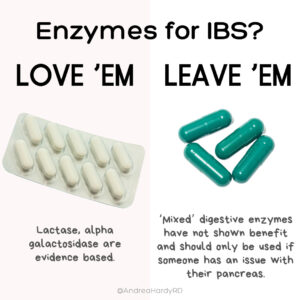
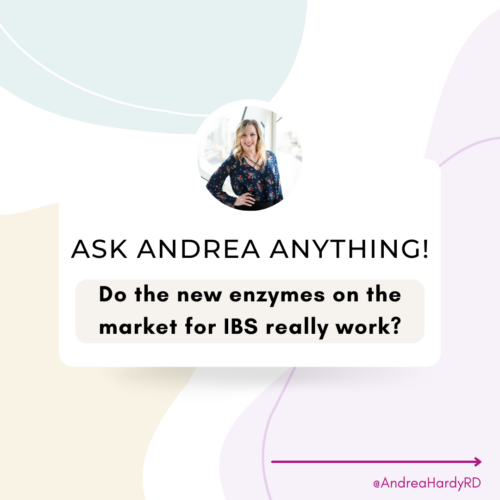
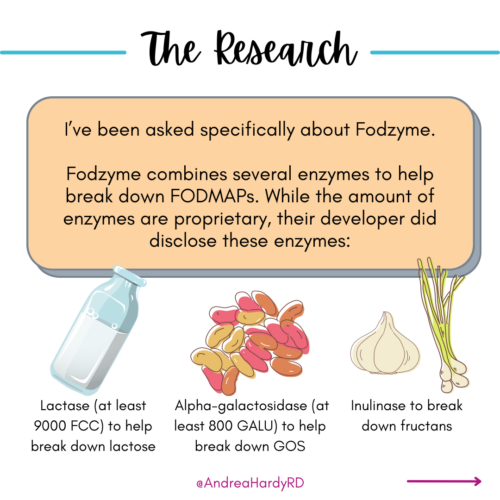
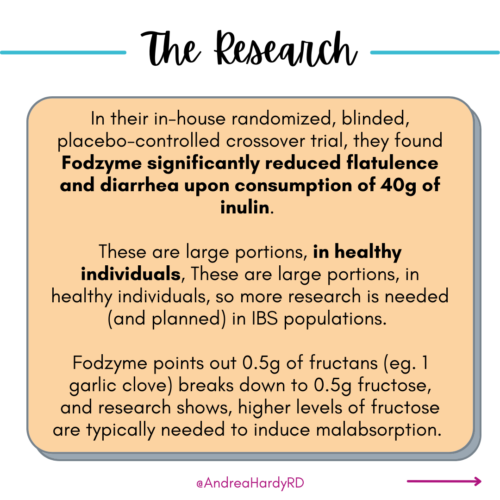
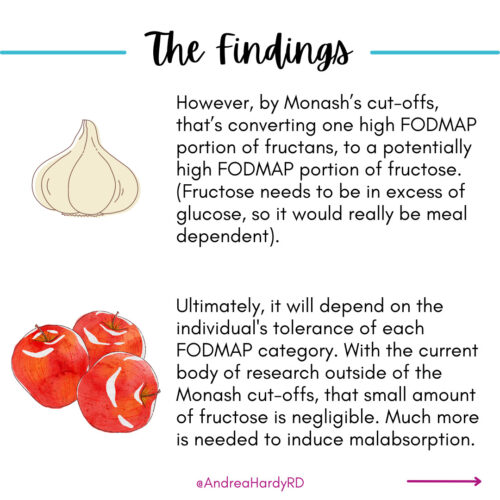
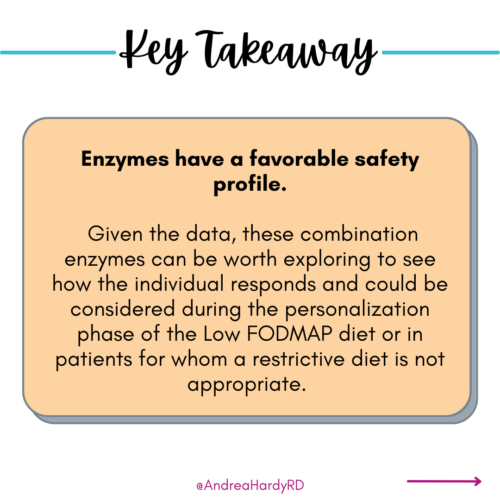
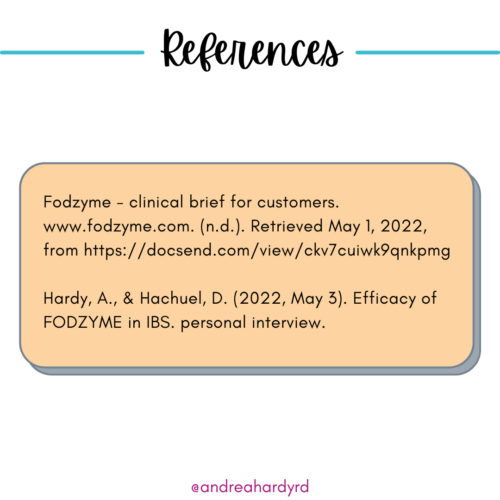
Recent Comments